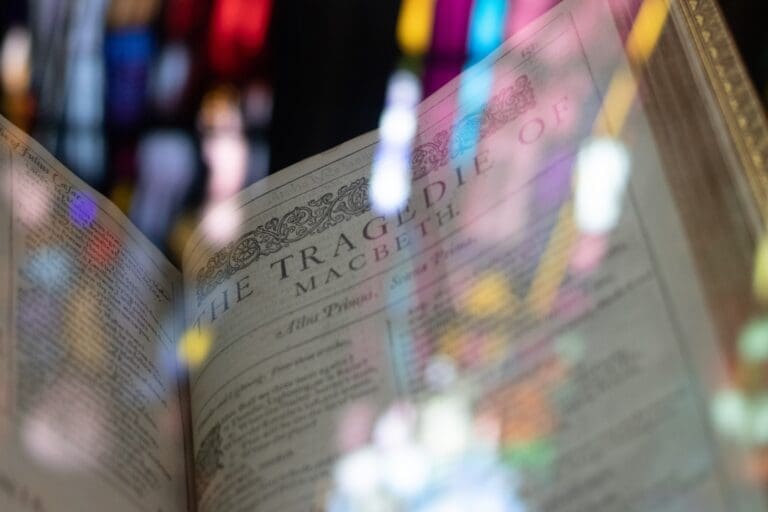Wisdom Wednesday: God’s Wisdom Versus Macbeth’s Foolishness
Submitted by Debbie’s Dad
“Vanity of vanities! All is vanity.”
(Ecclesiastes 1:2b NASB 95)
In Shakespeare’s famous play, Macbeth, the leading character is a brave, yet insecure warrior. Ambition consumes a complicated character, Macbeth, to become king. In the course of the play, many challenges (the death of Lady MacBeth, the impending assault by armies) confront him and in a moment of despair, he offers his view of life—a well-known quotation:
The way to dusty death. Out, out, brief candle!
Life’s but a walking shadow, a poor player
That struts and frets his hour upon the stage
And then is heard no more. It is a tale
Told by an idiot, full of sound and fury,
Signifying nothing.
For Macbeth at that moment, a life is like a shadow of a person, a poor actor who worries about playing his part on the stage, and when it is over, that is all there is. The brief candle of life is gone! Our life is just a sad story told by an idiot, full of activity and emotion – but in the end, it is devoid of any meaning.
It reminds us of King Solomon’s despair as he pondered a life apart from God:
“Vanity of vanities,” says the Preacher, “Vanity of vanities! All is vanity.”
What advantage does man have in all his work Which he does under the sun?
A generation goes and a generation comes, But the earth remains forever
There is no remembrance of earlier things; And also of the later things which will occur,
There will be for them no remembrance Among those who will come later still.
(Ecclesiastes 1: 2-4, 11 NASB 95)
In this passage, Vanity (Hebrew Hebel) is used to express the concept of emptiness, meaninglessness, or futility: something transitory or unsatisfying. And the expression “Vanity of vanities” is used on numerous occasions (Ecclesiastes 1:2, 2:1, 3:19, 4:4, 5:10, 6:9, 12:8, etc.) to describe emptiness in a superlative form, literally, “the emptiest of emptiness” or “Meaningless!” (the NIV translation).
This theme of life’s transitory nature is repeated in James: “Why, you do not even know what will happen tomorrow. What is your life? You are a mist that appears for a little while and then vanishes” (James 4:14).
As followers of Christ, we are to recognize the immense meaningfulness of our lives, as we walk to reveal God’s glory (to glorify God) in our lives. We are wise when we realize the true meaning of our life and follow the Lord’s guidance. Consider several passages on the rich meaning of our lives as we live in God’s wisdom:
- We are servants of the Most High God – “Well done, good and faithful servant! You have been faithful with a few things; I will put you in charge of many things. Come and share your master’s happiness!” (Matthew 25:23)
- We show forth God’s righteous living – “Who is wise and understanding among you? Let him show it by his good life, by deeds done in the humility that comes from wisdom.” (James 3:13)
- We are peacemakers on earth – “But the wisdom that comes from heaven is first of all pure; then peace-loving, considerate, submissive, full of mercy and good fruit, impartial and sincere. Peacemakers who sow in peace raise a harvest of righteousness.” (James 3:17-18)
- We survive the trials of life and demonstrate our trust in God – “Therefore everyone who hears these words of mine and puts them into practice is like a wise man who built his house on the rock. The rain came down, the streams rose, and the winds blew and beat against that house; yet it did not fall, because it had its foundation on the rock.” (Matt. 7: 24-27)
Do not let the trials of life convince you that life is meaningless! This is not all there is. Yes, it is brief like a vapor that disappears (as James said) and it appears to be a candle that is snuffed out (as Mabeth observed).
But life is a rich opportunity to trust in God and allow Him to reveal his character through our life as we endure the “way to dusty death” and on to eternal life!

1 thought on “Wisdom Wednesday: God’s Wisdom Versus Macbeth’s Foolishness”
Very encouraging. Thank you!